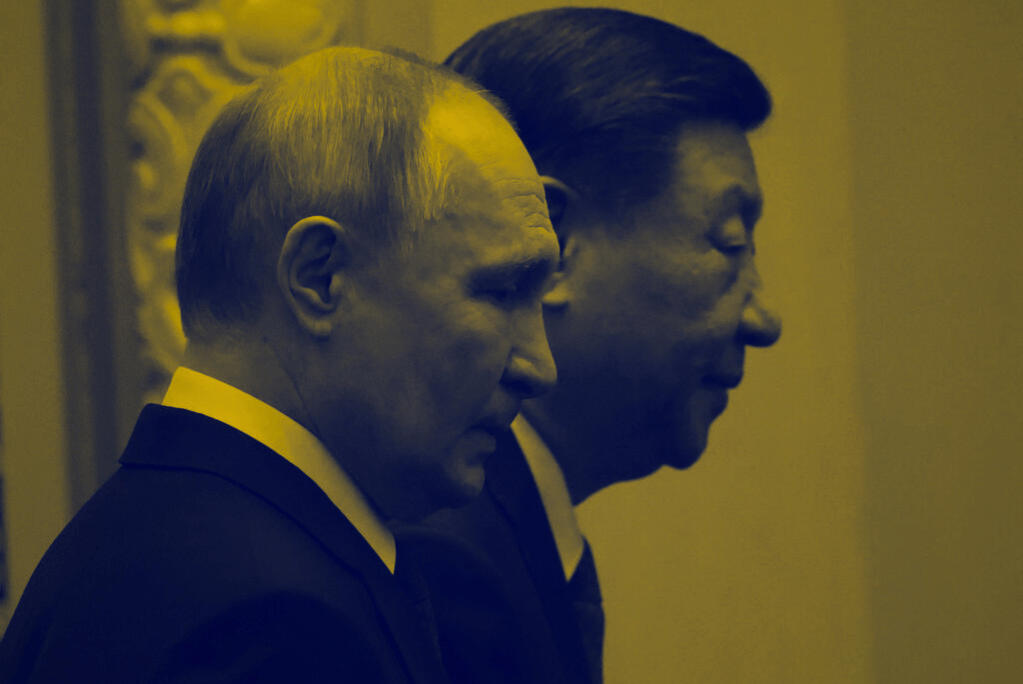
This article was originally published on The Dispatch - World. You can read the original article HERE

Anne Applebaum’s 2020 book Twilight of Democracy includes tales of how her once-normie conservative friends jumped into the deep end of the populist, conspiracist pool. It was a dismaying read then, but four years later—following massive reversals, stunning hypocrisies, bewildering flip-flopping, a newfound penchant for well-done steak with ketchup—it also has an uncanny quality.
That vague feeling of reading a week-old newspaper is actually a testament to Applebaum’s perceptiveness. The Pulitzer Prize-winning historian and staff writer for the Atlantic described the “alternate reality”—the big or sometimes just “medium-sized lie”—at the heart of the populist movements around the globe and even in the United States. She did so more than a year before the Big Lie about the 2020 election drove acolytes of former President Donald Trump to beat cops with flag poles. In just months, Twilight of Democracy came to feel so undeniably true that it made Applebaum’s conclusions look almost simplistic.
Something similar can be said about her latest offering, Autocracy, Inc.: The Dictators Who Want to Run the World. In a few short chapters, Applebaum captures an international order where the world’s dictators are helping each other out—with brutal consequences in democracies across the globe and for their own dissidents.
It’s not yet clear whether the dictator-laden international order Applebaum describes is a flash in the pan or an enduring playbook that will define an era. It’s not even entirely clear how we should talk about this moment in global history. Recent national security strategy documents have tried to reorient U.S. defense policy from the Global War on Terror toward the return of “great power competition.” In this view, the U.S. is staring down China and even Russia (though it feels overly generous to Russian President Vladimir Putin’s hobbled and revanchist regime).
But to others, that narrow view of head-to-head conflict between two states fails to capture the complexity of a moment when North Korean troops are on the ground in Russia, Iranian drones are flying over Kyiv, and Chinese oil purchases are keeping the regimes in Moscow and Tehran afloat. Instead some, like former Trump National Security Adviser H.R. McMaster, have leaned on the language of an “axis,” calling the regimes in Russia, Iran, North Korea, and China an “axis of aggressors”—a contemporary spinoff of President George W. Bush’s famous description of rogue regimes as composing an “axis of evil.”
Regardless of what these U.S. adversaries are called, a deeper question remains: What unites them?
Applebaum offers a way to think about why those authoritarians might work together beyond hatred qua hatred for the U.S. or the West, an arrangement she aptly calls “Autocracy, Inc.” The conflict between the West and these regimes is not “Cold War 2.0.” After all, the countries in question are neither ideologically uniform nor geographically distinct, plotting, as they mostly did in the original version, from behind an Iron Curtain. Instead, Applebaum argues that the autocrats who lead regimes in dozens of countries—the usual suspects, but also the under-the-radar strongmen in Venezuela, Nicaragua, Zimbabwe, Belarus, and Azerbaijan, among others—operate “not like a bloc but rather like an agglomeration of companies, bound not by ideology but rather by a ruthless, single-minded determination to preserve their personal wealth and power.”
Why, if they’re so self-interested, should they turn their collective fire on the West? “Autocrats hate [democratic] principles because they threaten their power,” Applebaum writes. “Their opposition … has its roots in the very nature of the democratic political system, in words like ‘accountability,’ ‘transparency,’ and ‘democracy.’ They hear that language coming from the democratic world, they hear the same language coming from their own dissidents, and they seek to destroy them both.”
Over the course of five chapters, Applebaum breaks down five autocratic behaviors. She describes kleptocracy enabled by decades of free trade between the West and autocracies; a well-integrated and opaque global financial system that lets autocrats and their lackeys launder money through property in democracies; sophisticated, state-backed disinformation campaigns that aim to make the truth feel unknowable and encourage cynicism both at home and in democracies around the world; revisionist efforts by China, Russia, and others to hollow out the language of the U.S-led, rules-based international system in order to remake it in their image; and elaborate smear campaigns that target any dissident that dares stand up to the regime, generating distrust and warning off any who would follow in their footsteps. The despots who rule the world’s autocracies learn from each other to build on and improve those behaviors.
That these things are happening is undeniable, based on evidence Applebaum ably deploys. In one particularly compelling illustration, she describes the spread—in the aftermath of Russia’s 2022 invasion of Ukraine—of a bogus story about U.S.-funded biolabs in Ukraine allegedly conducting research on bat viruses first promulgated by Russian officials.
The tale got some play on Twitter, then Alex Jones and Tucker Carlson boosted it. Then Chinese state media got a hold of it, pushing it as a way to deflect from the possibility that one of their biolabs had been the source of the COVID-19 pandemic. Outlets around the world with content-sharing agreements with Chinese media republished the verifiably false story, as did several “information laundromats,” as Applebaum calls them. Sites based in Moscow, Damascus, and elsewhere spread and legitimized Russian propaganda across the world and in various languages. The Justice Department just last month announced it had disrupted some such Russian operations, called “Doppelganger,” including RT employees who helped set up a U.S. company to pay right-wing American influencers in an effort to sow division and spread Russian propaganda.
The ultimate goal of such joint operations—even if they’re decentralized—is to “create chaos,” Applebaum argues. “They hope to encourage people to question the state, to doubt authority, and eventually to question democracy itself.” For if democracy is chaotic and messy, authoritarians have an orderly solution: them.
The unanswered question about this collaboration between the world’s autocratic regimes is its durability. Applebaum wants the U.S. and the West to take steps to cut off the means of their cooperation, these “autocratic behaviors”—from making financial institutions more transparent to limiting overdependent trade relationships with China—to curtail their cooperation that way.
But perhaps the more important question is one of will: If the U.S. gets in a shooting war with China over Taiwan, how helpful will Iran or North Korea or Russia be to Beijing? If you believe Applebaum, their “help” may come in the form of arson elsewhere. “The autocracies keep track of one another’s defeats and victories, timing their own moves to create maximum chaos,” she writes, pointing to the multiple conflagrations across the globe in 2023 as a prime example. “This multifaceted, interconnected, self-reinforcing polycrisis was not coordinated by a single mastermind, and it is not evidence of a secret conspiracy.” Rather, they’re to some degree crimes of opportunity against democracies and democratic values.
The search for the foreign policy metanarrative—Cold War 2.0, or Great Power Competition, or the West vs. an Axis of Evil, or, indeed, Autocracy, Inc.—isn’t just a navel-gazing exercise for ivory tower types. It’s ultimately a discussion, both for the people who make the national security decisions in the U.S. and elsewhere in the West, about priorities. And the ship of state turns slowly, so it had better be headed in the right direction.
For example, there are policymakers who believe (wrongly, in my view) that the rise of China should be the only concern of U.S. national security policy. In that view, aid for Ukraine, then, is at best a distraction and at worst an active risk to U.S. national security. Vice President Kamala Harris said last month that Iran is America’s greatest adversary. Agree or disagree with the sentiment, that distinction, at least notionally, implies prioritization.
As apt as Applebaum’s analysis surely feels now, perhaps it, like the other pithy ways we’ve described the world as it is and has been, will become outmoded. For now, though, her thesis presents a challenge: If every crisis can easily—and may necessarily—cascade into another elsewhere, how should democracies plan or prioritize? Projecting American strength, in collaboration with allies, is probably a good place to start.
This article was originally published by The Dispatch - World. We only curate news from sources that align with the core values of our intended conservative audience. If you like the news you read here we encourage you to utilize the original sources for even more great news and opinions you can trust!










Comments